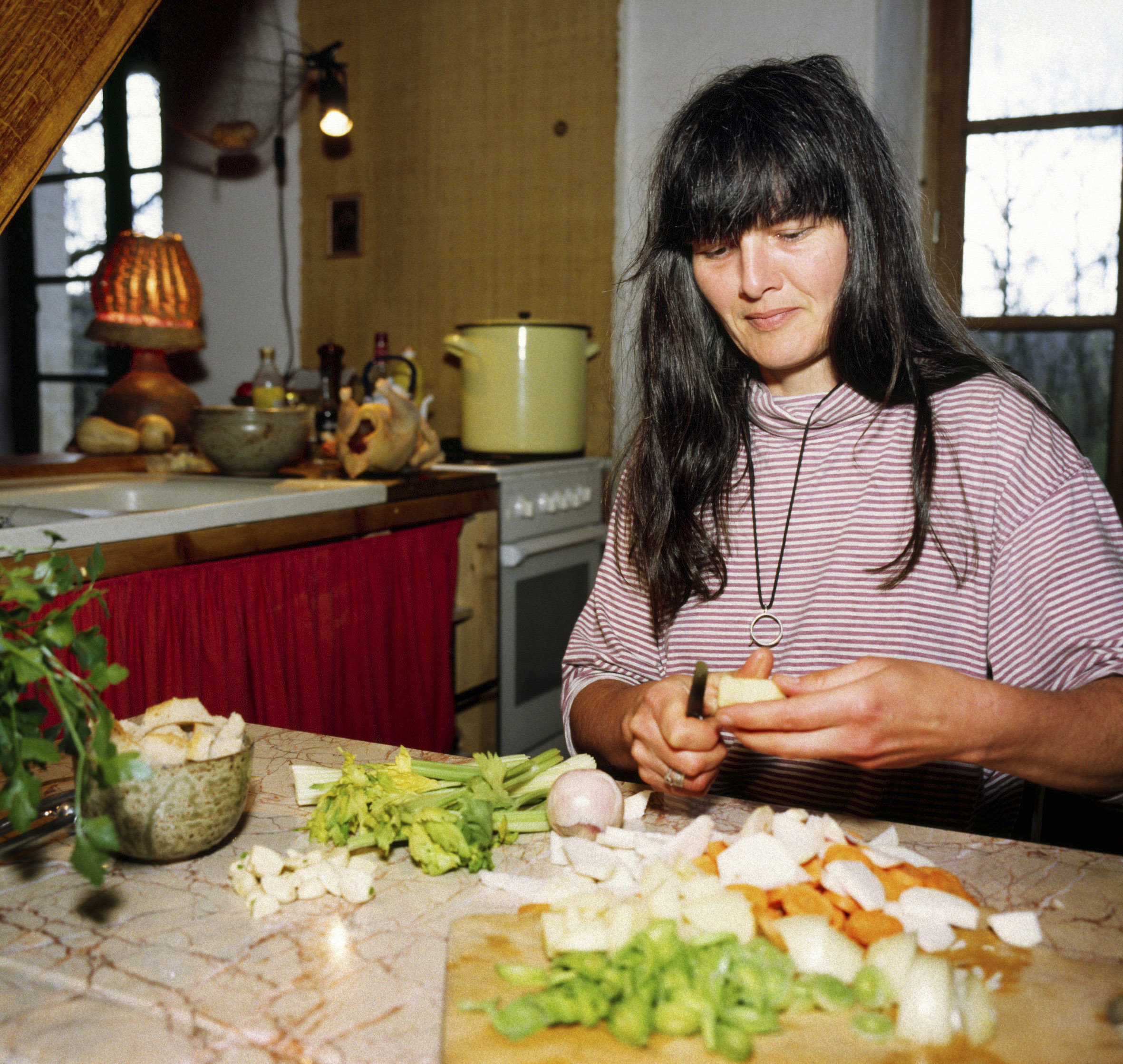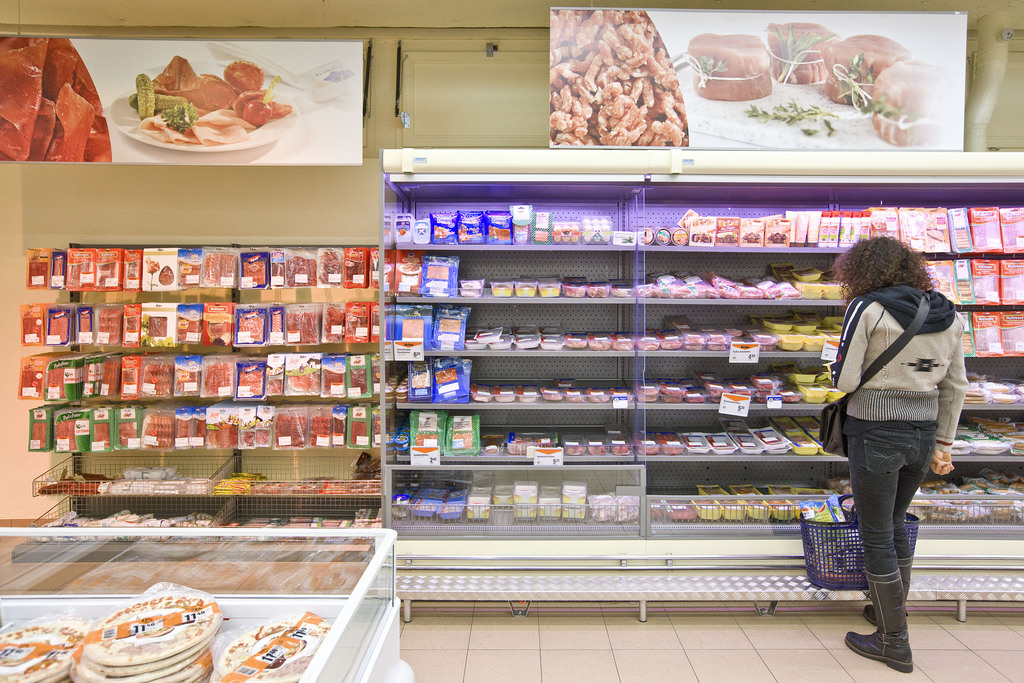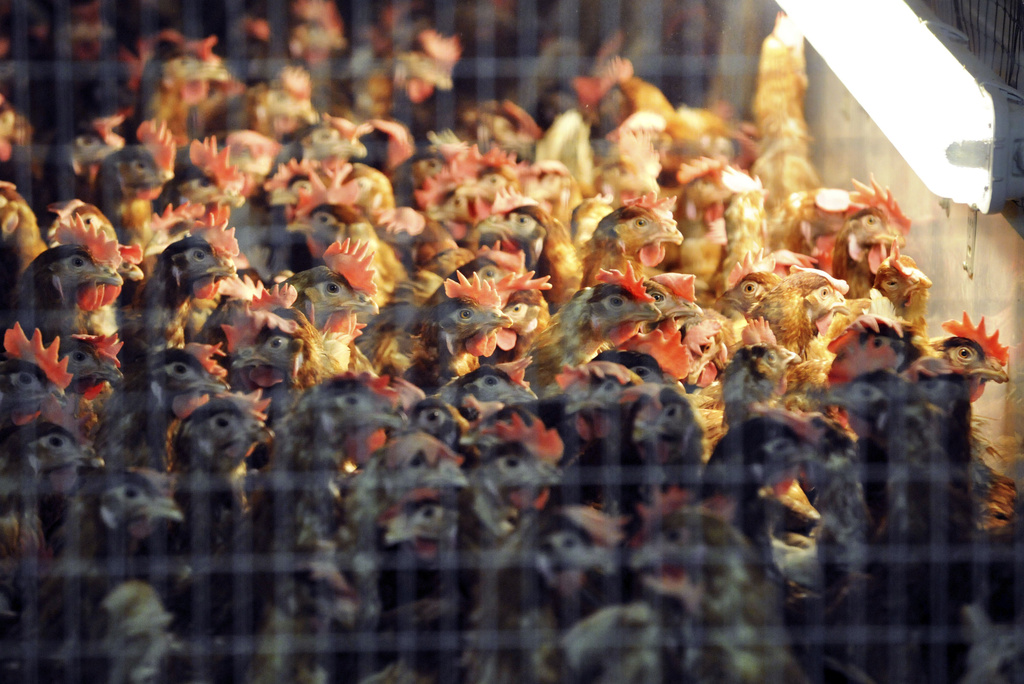Social change stirs emotions in the kitchen

Swiss eating habits have changed dramatically over the years, but the recent spate of unappetising food scandals has had little effect on consumer behaviour.
By their own admission, almost one in three Swiss pays no attention to his or her diet and shows no interest in dietary recommendations.
This was one of several surprising findings of the Sixth Swiss Nutrition Report, published every seven years and most recently in January, when the Swiss received a resounding “could do better” (see related story).
A major area of concern was the jump in so-called convenience foods – ready-to-eat and ready-to-cook products which often contain high amounts of fat, salt and sugar.
“One of the biggest changes has been Swiss women entering the workforce,” explained Mirjam Hauser, author of a 2012 report on consumers and food and a senior researcher at one of Switzerland’s oldest think tanks, the Gottlieb Duttweiler Institute (GDI), named after the founder of the Migros supermarket chain.
“Women now have less time and don’t prepare home-cooked meals as often as they used to – especially at lunch time. Food preparation time has declined, particularly over the past 30 years, so people are increasingly using convenience products. They might cook their own pasta, but then use ready-prepared tomato sauce.”
Hauser said the Swiss were also spending more time commuting – another nail in the coffin of eating lunch at home, a situation that was only going to get worse.
“We’ll be eating more and more on the go – even between the office and home,” she told swissinfo.ch, adding that convenience food as we know it today will have to develop into better quality products – such as organic, fresh, natural, local ingredients – “otherwise they will not regain the consumer’s trust”.
swissinfo.ch visited two supermarkets in Bern to hear what consumers had to say.
Daniela, 45, had only bought drinks for herself and her daughters but said she had been concerned for a long time about how people did their shopping.
“We get the hard sell – and I don’t like it. By that I mean we’re always being offered pre-prepared food products, and I’d really like people to start cooking again with natural ingredients.”
She said she always looked closely at where a product came from, whether it was in season – “I’d never buy strawberries in January” – and made an effort to buy agriculture-friendly produce.
Maximilian, 80, had just been shopping in Coop and said he wasn’t too worried about the horse meat scandal since he liked cooking and never bought convenience food anyway.
Before popping something into his shopping trolley he always checked the E numbers – food additives – and general ingredients and whether it was Swiss or regional – “always better”.
“I generally only come to these supermarkets for the basics as I live nearby. I prefer to buy regional produce from the smaller shops. It’s also good buying stuff like vegetables and potatoes from the farmer direct.”
He admitted, however, that this hadn’t always been the case. He used to buy a lot more convenience food but had seen television programmes on how food was produced “and they make you slightly critical”.
Indifference
For weeks, media across Europe have been pumping out reports of horse meat in supermarket lasagne and most recently Ikea chocolate cakes containing traces of coliform bacteria, universally present in animal faeces.
One might have thought that headlines such as ‘Food fiddlers’ reflected popular outrage, but according to an online survey of 500 people in German-speaking Switzerland published on March 12, only 15 per cent said they were staying clear of ready-made products containing meat.
Claude Messner, a professor of consumer behaviour at the University of Bern, wasn’t surprised. “People change their purchasing behaviour concerning food only when they fear for their health and safety – for example with the BSE [mad cow disease] scandal,” he said.
Scandals such as the horse meat lasagne “unsettle customers”, admitted Monika Weibel, spokeswoman for Migros, which opened Switzerland’s first supermarket, in Zurich, in 1948.
“For this reason the issue of sustainability plays an increasing role: customers want to know what they’re eating and want to be sure that its production followed good practice, in the sense of being good for people, animals and nature. But the current horse meat scandal has had hardly any effect on the consumer behaviour of Migros customers.”
Urs Meier, spokesman for rival retail giant Coop, agreed, saying it was “difficult to determine a causal connection” between food scandals and what people buy.
He did say, however, that customer requirements had changed “massively” in the past decade alone.
“Eating today is more than just food intake. People are more aware of what they are eating and try to follow a balanced, healthy diet. Shoppers have become more price-conscious. They also like freedom of choice, variety, quality, freshness and have become aware of sustainable issues. Organic and regional produce are today greatly valued.”

More
Horsemeat scandal raises ante on food labelling
Organic
Indeed, frozen pizzas and crisps aren’t the only food items enjoying a boom. In the past 30 years, fish consumption in Switzerland has increased by close to 50 per cent, providing a greater supply of healthy fatty acids.
Organic food – grown without synthetic pesticides or chemicals – has also gone from strength to strength, although evidence of health benefits remains inconclusive.
Coop launched the first organic brand for a Swiss supermarket 20 years ago and is now one of the largest providers of organic goods worldwide. In 2012, organic products were one of Migros’ prime drivers of revenue, with growth of nine per cent.
“Bio is a growing segment,” Migros’ Weibel said. “Many customers try to eat healthily and value a production process that is as natural as possible – not only for their own good but also for the good of the environment and animals.”
According to Philipp Widmer from the Swiss Markets Association, many people are fed up with food being carried over long distances “just to have it a little cheaper”, so they go to farmers’ markets to buy local produce.
The Swiss diet remains meat-heavy, but vegetarianism is on the up. Renato Pichler from the Swiss Vegetarian Association told swissinfo.ch that 30 years ago there were certainly many vegetarians – mostly for health or religious reasons – but unlike today they tended to live a somewhat secluded life.
“In recent years, however, additional reasons have come into play: the environment – climate change is greatly boosted by the eating of meat – and animal protection – factory farming has further intensified,” he said.
“In addition, the disadvantages of eating meat are increasingly spread by the media and online, with the result that the number of vegetarians has continuously risen in recent decades.”
He said there weren’t exact figures for the number of vegetarians in Switzerland, but looking at other countries it reckoned around five per cent of Switzerland’s eight million inhabitants didn’t eat meat and 0.5 per cent were vegan.
As for whether food scandals convert more people to vegetarianism, Pichler thought they certainly had an influence, but as a rule a scandal isn’t enough to turn someone vegetarian.
“It can, however, serve as an impetus in this direction and be the final straw that makes one lose patience with the meat industry.”
Price vs provenance
But as British author George Orwell once observed, “the less money you have, the less inclined you feel to spend it on wholesome food. A millionaire may enjoy breakfasting off orange juice and Ryvita biscuits; an unemployed man doesn’t”.
Widmer acknowledged that whether one is able – or willing – to shop at local shops or markets depends to a great extent on one’s personal budget.
“For many people the price label is more important than the provenance label and therefore local products are too expensive for them,” he said. “But there is also an increasing number of shoppers who really care about where their food comes from and this leads them to local shops or markets instead.”
As for the future, Hauser comes back to Switzerland’s changing gender landscape.
“I think men will have a big impact on how and what we cook. As men and women increasingly share household duties, men are beginning to cook more and they are interested in different kinds of food than women,” she said.
“It’s possible that men will drive new eating habits.”
(With input from Susan Vogel-Misicka)

In compliance with the JTI standards
More: SWI swissinfo.ch certified by the Journalism Trust Initiative





You can find an overview of ongoing debates with our journalists here. Please join us!
If you want to start a conversation about a topic raised in this article or want to report factual errors, email us at english@swissinfo.ch.